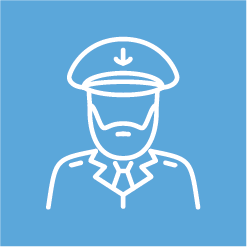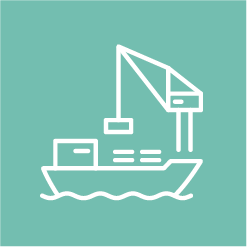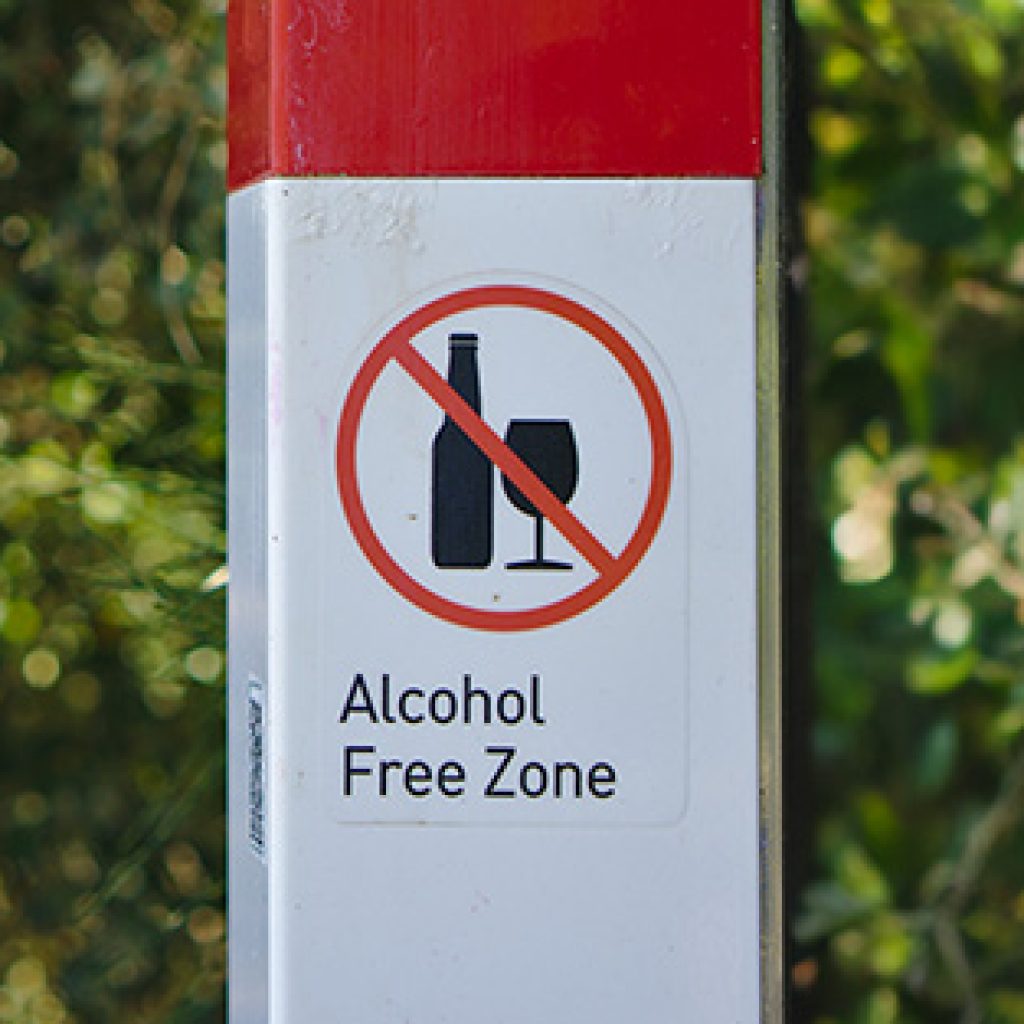Navigating the Gambling Counselor Intern Flowchart
Open the awesome flowchart entitled “Do You Want To Become a Nevada Certified Problem Gambling Counselor?” and I will guide you, like a happy cruise director, for a more pleasant experience. It’s usually smooth sailing, however I’ll offer some lifesavers in case we encounter stormy weather during your voyage.
Greetings, I’m Denise Quirk, a CPGC-Supervisor in Nevada. I had the awesome opportunity to serve my fellow Nevadans and others moving here who wished to become expert counselors serving those affected by gambling disorder by assisting in creating and getting legislation passed in 2004 which raised the treatment bar in Nevada. Nevada proudly represents one of the few United States which certify problem gambling counselors and supervisors, using the only nationally-approved gambling exam available. That means we are the best! We can share that information with confidence, knowing our CPGC’s and CPGC-Supervisors and CPGC-Interns are the finest experts in offering treatment to people affected by gambling disorder in Nevada and perhaps the whole country!
Download Problem Gambling Flowchart
This also means interns and supervisors have some difficult work to do together. I think you’d agree with me and the others who helped establish our high standards that anyone wanting an expert in caring for themselves and their loved ones want the best. We can do hard things, and the things we do that are hard are worth it!
This certification requires rigorous study and involvement with people affected by gambling disorder. Finding the right supervisor and the right place to do this treatment is one of your highest priorities. In order to get to your destination, using our nautical metaphor, you need a good captain and a good ship.
1. Find your captain (CPGC-Supervisor).
 This is easiest accomplished by either asking an existing Nevada gambling counselor who he/she used for supervision, or emailing the Executive Director of the Board of Examiners for Alcohol, Drug and Gambling Counselors, Agata Gawronski, at agawronski@adgc.nv.gov, and finding the current list of active CPGC-Supervisors. Call a supervisor near you and make an appointment to discuss possible supervision options right away. Think in advance about a good fit for you and be prepared to interview the supervisor. You’ll be spending lots of quality time together on the voyage ahead. Remember to check credentials on the Board of Examiners for Alcohol, Drug and Gambling Counselor’s website to be sure the supervisor’s licenses are active.
This is easiest accomplished by either asking an existing Nevada gambling counselor who he/she used for supervision, or emailing the Executive Director of the Board of Examiners for Alcohol, Drug and Gambling Counselors, Agata Gawronski, at agawronski@adgc.nv.gov, and finding the current list of active CPGC-Supervisors. Call a supervisor near you and make an appointment to discuss possible supervision options right away. Think in advance about a good fit for you and be prepared to interview the supervisor. You’ll be spending lots of quality time together on the voyage ahead. Remember to check credentials on the Board of Examiners for Alcohol, Drug and Gambling Counselor’s website to be sure the supervisor’s licenses are active.
2. Find your ship (the agency, hospital, or college clinic providing treatment services of all levels of care for people affected by gambling disorder, including those with the disorder and their family members).
 The CPGC-Supervisor must either work in that agency or is employed by that agency to do work there. Usually that means you will become an employee of that agency in various capacities such as Intake Specialist, Case Manager, Counselor-Intern, or even Certified Nursing Assistant, depending on what your previous experience and training is. In my case, I presently live and practice privately in Sparks, and I have part-time contracts with an agency in Reno (Ridge House) and an agency in Fallon (New Frontier Treatment Services) to offer clinical supervision for their CPGC-Interns. I believe that will become more common as the regulations allow more individuals to supervise CPGC-Interns. When you become an intern, you can either work for payment (usually the preferred option, but not always available) or you may do volunteer clinical work to obtain your clinical hours. By “clinical hours” I mean any clinical interaction ranging from doing prevention and outreach presentations, to evaluations and interventions, to individual, couples’, family and group counseling supervised by your CPGC-Supervisors and other clinical supervisors at that agency. If you are that rare bird (I’m thinking albatross, since we’re using a nautical theme here) that can afford to do clinical work and pay for supervision out-of-pocket), you could actually accomplish your clinical hours without getting a paycheck. You would still have to have a contract with that agency for all the proper human resources, confidentiality, HIPAA, and other regulations for your safety and the safety of your clients. Is there a tidy list of agencies that have CPGC’s in them? Sadly, not at this time. However, the way you find treatment for gambling disorder is the same way you find gambling treatment experts. Your CPGC-Supervisor is an excellent resource.
The CPGC-Supervisor must either work in that agency or is employed by that agency to do work there. Usually that means you will become an employee of that agency in various capacities such as Intake Specialist, Case Manager, Counselor-Intern, or even Certified Nursing Assistant, depending on what your previous experience and training is. In my case, I presently live and practice privately in Sparks, and I have part-time contracts with an agency in Reno (Ridge House) and an agency in Fallon (New Frontier Treatment Services) to offer clinical supervision for their CPGC-Interns. I believe that will become more common as the regulations allow more individuals to supervise CPGC-Interns. When you become an intern, you can either work for payment (usually the preferred option, but not always available) or you may do volunteer clinical work to obtain your clinical hours. By “clinical hours” I mean any clinical interaction ranging from doing prevention and outreach presentations, to evaluations and interventions, to individual, couples’, family and group counseling supervised by your CPGC-Supervisors and other clinical supervisors at that agency. If you are that rare bird (I’m thinking albatross, since we’re using a nautical theme here) that can afford to do clinical work and pay for supervision out-of-pocket), you could actually accomplish your clinical hours without getting a paycheck. You would still have to have a contract with that agency for all the proper human resources, confidentiality, HIPAA, and other regulations for your safety and the safety of your clients. Is there a tidy list of agencies that have CPGC’s in them? Sadly, not at this time. However, the way you find treatment for gambling disorder is the same way you find gambling treatment experts. Your CPGC-Supervisor is an excellent resource.
3. Choose your destination and chart your course.
 As you see on the flowchart, much depends on the education and counseling skills training you already have or are ready to enroll in. Your CPGC-Supervisor (in my case my nickname is sometimes “Captain Quirk,” as some of you may hear sounds a lot like another Captain…) will assess your readiness for immediate clinical work or perhaps recommend additional counselor training and education before you begin working directly with people who are affected by gambling disorder. Your supervisor will be “checking your engines and making sure you don’t run out of gas.” That’s a colloquial phrase that has to do with time management, your capacity for a lot of work and study, how you do self-care, and what your goals are. Clinical supervisors are truly experts in time management, test preparation, business plans, and self-care, having done all those things in their own work with their clinical supervisors in the recent past. If you are a person who will require all five years that are available to you to obtain your training and pass the written and oral exams, then your CPGC-Supervisor will help you chart a course for success at that rate. If you may be able to do all of this in one year, namely you need 1000 hours of clinical experience, successful completion of the written exam, and successful completion of the oral exam in 365 days, your supervisor will have an intense and appropriate supervision plan for you.
As you see on the flowchart, much depends on the education and counseling skills training you already have or are ready to enroll in. Your CPGC-Supervisor (in my case my nickname is sometimes “Captain Quirk,” as some of you may hear sounds a lot like another Captain…) will assess your readiness for immediate clinical work or perhaps recommend additional counselor training and education before you begin working directly with people who are affected by gambling disorder. Your supervisor will be “checking your engines and making sure you don’t run out of gas.” That’s a colloquial phrase that has to do with time management, your capacity for a lot of work and study, how you do self-care, and what your goals are. Clinical supervisors are truly experts in time management, test preparation, business plans, and self-care, having done all those things in their own work with their clinical supervisors in the recent past. If you are a person who will require all five years that are available to you to obtain your training and pass the written and oral exams, then your CPGC-Supervisor will help you chart a course for success at that rate. If you may be able to do all of this in one year, namely you need 1000 hours of clinical experience, successful completion of the written exam, and successful completion of the oral exam in 365 days, your supervisor will have an intense and appropriate supervision plan for you.
4. Join the crew.
 A fun voyage through clinical supervision ending in a victory party at your CPGC destination will include other CPGC-Interns, CPGC-Supervisors, and CPGC’s. It would be grand if you had access to all three at your place of employment. However, as large as the geography of Nevada is, you are more likely going to be the only two people in your agency with those initials after your name (CPGC-Intern and CPGC-Supervisor). A perfect way to fraternize with and learn from other like-minded gambling treatment experts is to get involved with professional organizations, do some volunteer/service work with your gambling treatment colleagues, attend gambling conferences both in Nevada and elsewhere, and immediately choose research and clinical podcasts and sites to follow. By choosing the expertise of gambling counseling, you are on a career-long voyage of learning and maintenance of your skills and knowledge. The Nevada Council on Problem Gambling, a non-profit organization dedicated to education and helpful resources for CPGC’s and everyone else, sponsors the Nevada State Gambling Conference each spring, usually held in Las Vegas. Get on their mailing list and plan to attend! There are professional organizations such as the National Council on Problem Gambling and the International Center for Responsible Gambling and more which are specific to gambling research, advocacy, treatment and prevention work. Your supervisor will guide you to choosing involvement that you can best achieve your goals by participating and serving immediately and at a frequency you’ll be able to benefit best from and handle with all the other sails, rigging, engine refueling and deck-swabbing you’ll be doing!
A fun voyage through clinical supervision ending in a victory party at your CPGC destination will include other CPGC-Interns, CPGC-Supervisors, and CPGC’s. It would be grand if you had access to all three at your place of employment. However, as large as the geography of Nevada is, you are more likely going to be the only two people in your agency with those initials after your name (CPGC-Intern and CPGC-Supervisor). A perfect way to fraternize with and learn from other like-minded gambling treatment experts is to get involved with professional organizations, do some volunteer/service work with your gambling treatment colleagues, attend gambling conferences both in Nevada and elsewhere, and immediately choose research and clinical podcasts and sites to follow. By choosing the expertise of gambling counseling, you are on a career-long voyage of learning and maintenance of your skills and knowledge. The Nevada Council on Problem Gambling, a non-profit organization dedicated to education and helpful resources for CPGC’s and everyone else, sponsors the Nevada State Gambling Conference each spring, usually held in Las Vegas. Get on their mailing list and plan to attend! There are professional organizations such as the National Council on Problem Gambling and the International Center for Responsible Gambling and more which are specific to gambling research, advocacy, treatment and prevention work. Your supervisor will guide you to choosing involvement that you can best achieve your goals by participating and serving immediately and at a frequency you’ll be able to benefit best from and handle with all the other sails, rigging, engine refueling and deck-swabbing you’ll be doing!
5. Stay in ship-shape.
 When your CPGC-Supervisor asks, “how are you doing?” and “what are you doing to stay well?”…there are a few good answers I’d recommend. One is, “I’m going to Gam-anon since I literally fit the description of a friend or loved one of problem gamblers, and I’m going to pay attention.” Another good answer may be, “I’m increasing my yoga, meditation, nutrition and birdwatching to keep my tanks full and my brain clear and strong.” Also, preparing for the written and oral exams is something you’ll need to do “mental pushups” with your supervisor and CPGC-Interns who you’ll hopefully be meeting with at least twice a month. Two times’ monthly individual or group supervision is required, along with at least one session per month that you and your supervisor either do clinical work together or you send the recording/video of your session to your supervisor to review your clinical work. I enjoy group supervision with several interns so that we can stay in ship-shape and do mental pushups together and share our best test-prep methods.
When your CPGC-Supervisor asks, “how are you doing?” and “what are you doing to stay well?”…there are a few good answers I’d recommend. One is, “I’m going to Gam-anon since I literally fit the description of a friend or loved one of problem gamblers, and I’m going to pay attention.” Another good answer may be, “I’m increasing my yoga, meditation, nutrition and birdwatching to keep my tanks full and my brain clear and strong.” Also, preparing for the written and oral exams is something you’ll need to do “mental pushups” with your supervisor and CPGC-Interns who you’ll hopefully be meeting with at least twice a month. Two times’ monthly individual or group supervision is required, along with at least one session per month that you and your supervisor either do clinical work together or you send the recording/video of your session to your supervisor to review your clinical work. I enjoy group supervision with several interns so that we can stay in ship-shape and do mental pushups together and share our best test-prep methods.
 I’m happy to offer my ideas to anyone who is pursuing clinical work in helping those affected by gambling disorder. It’s a joy to do supervision, and it’s also a joy to just chat on the phone and encourage each other. You can reach me by calling or texting (775) 284-7275, or emailing deniseq@unr.edu. I teach the UNR CAS 439/639 course, “Exploring Gambling Behaviors” online, and that is another way to gain some good gambling knowledge for your journey. If I’m birdwatching and it takes me a day or two to get back to you, I will return that call as soon as I can. Meanwhile, ahoy and thanks, matey! It’s going to be a great journey!
I’m happy to offer my ideas to anyone who is pursuing clinical work in helping those affected by gambling disorder. It’s a joy to do supervision, and it’s also a joy to just chat on the phone and encourage each other. You can reach me by calling or texting (775) 284-7275, or emailing deniseq@unr.edu. I teach the UNR CAS 439/639 course, “Exploring Gambling Behaviors” online, and that is another way to gain some good gambling knowledge for your journey. If I’m birdwatching and it takes me a day or two to get back to you, I will return that call as soon as I can. Meanwhile, ahoy and thanks, matey! It’s going to be a great journey!
Denise F. Quirk, M.A., MFT, LCADC, BACC-ICGC-II, CPGC-S, LADC-S
Blog Post Tags:
Related Blog Posts
Related Learning Labs
Related Resources
.
- Buscar Tratamiento de Calidad para Trastornos de uso de Sustancia (Finding Quality Treatment for Substance Use Disorders Spanish Version)
- Finding Quality Treatment for Substance Use Disorders
- Focus On Prevention: Strategies and Programs to Prevent Substance Use
- Monthly Variation in Substance Use Initiation Among Full-Time College Students
- The National Survey on Drug Use and Health (NSDUH) Report: Monthly Variation in Substance Use Initiation Among Adolescents








